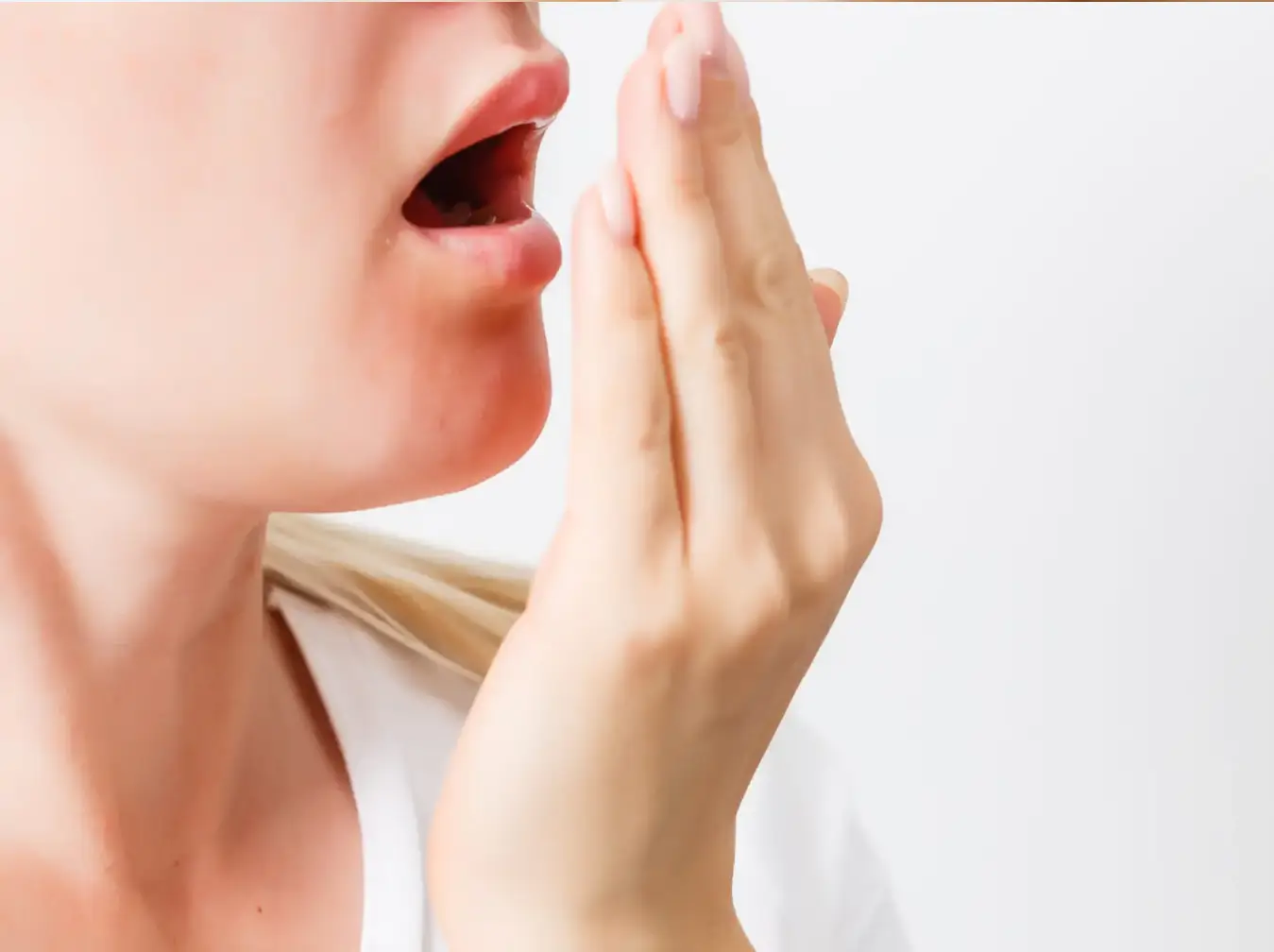Bad Breath
Having bad breath is a case that so many people have trouble with and makes them uncomfortable. To avoid halitosis known as bad breath, firstly, the causes must be known. The causes of bad breath; – Bad breath usually originates from the mouth. Inadequate oral hygiene, particles of edible food; cause accumulation on the tongue surface, between the gums, on the gingival surface and the tooth surface. When these particles are destroyed by the bacteria in the flora of our mouth, chemicals with a bad odour coming out. – Saliva helps to break down the food in the mouth. Therefore, individuals with dry mouths are at a higher risk of bad breath. Some drugs, smoking and mouth breathing can cause dry mouth. – Infections in the mouth can also cause bad breath. Dental caries, periodontal problems and injuries after surgical extraction can also cause bad breath. – A bacterial film called plaque forms in our mouth after meals. If we do not remove this film layer by brushing and flossing, it accumulates and a bad odour is formed by the bacteria in the plaque, which affects the bad breath. – In addition, the food we eat has a great effect on bad breath. Foods with a strong smell, such as onions and garlic, may not go out of the mouth even after brushing, flossing and mouthwash before they are eliminated from the body. – Bad breath can also be a symptom of some health problems. Nasal infections, lung diseases, chronic sinusitis, diabetes, chronic bronchitis, and digestive system disorders are among the problems that can cause bad breath. Prevention of Bad Breath – To prevent bad breath, first of all, the cause of bad breath should be known. Oral hygiene should be observed. Paying attention to oral hygiene reduces plaque accumulation, which reduces the risk of caries and periodontal problems. – Brushing the teeth with the tongue surfaces twice a day and using dental floss reduces bad breath. If a removable prosthesis is used, the prosthesis should be removed at night. The removable prosthesis should be thoroughly cleaned before use the next day. – If the problem is caused by a dry mouth, it is recommended to chew sugar-free gum. Sugar-free gum helps increase saliva flow by stimulating saliva flow. In addition, the use of artificial saliva may be required for treatment. – During your meeting with your dentist, after it becomes clear whether the problem is due to a systemic disease or due to poor oral hygiene and other dental problems, your dentist can prevent bad breath with a treatment plan.

